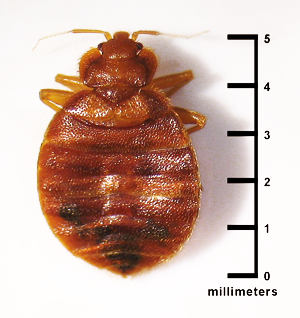Introduction to Bed Bugs

Información relacionada disponible en español
The common bed bug (Cimex lectularius) has long been a pest – feeding on blood, causing itchy bites and generally irritating their human hosts. The Environmental Protection Agency (EPA), the Centers for Disease Control and Prevention (CDC), and the United States Department of Agriculture (USDA) all consider bed bugs a public health pest. However, unlike most public health pests, bed bugs are not known to transmit or spread disease.
They can, however, cause other public health issues, so it’s important to pay close attention to preventing and controlling bed bugs.
Experts believe the recent increase in bed bugs in the United States may be due to more travel, lack of knowledge about preventing infestations, increased resistance of bed bugs to pesticides, and ineffective pest control practices.
The good news is that there are ways to control bed bugs. Getting good, solid information is the first step in both prevention and control. While there is no chemical quick fix, there are effective strategies to control bed bugs involving both non-chemical and chemical methods.
Bed bugs can be hard to find and identify, given their small size and their habit of staying hidden. It helps to know what they look like, since the various life stages have different forms.
